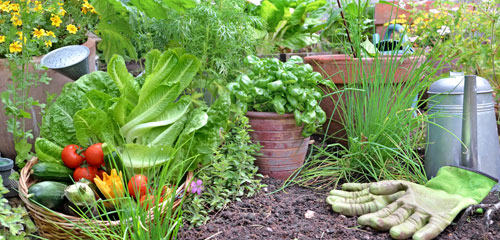Over 45? Heard it’s all downhill from here? Well, it really doesn’t have to be, as nutritionist Kirsten Chick explains…
Don’t get me wrong, we all age, and our bodies do change. Some of us will have a harder time of it than others. But being proactive with nutrition really can supercharge your system, smoothing out some of the niggles, while helping to increase both the energy and optimism you thought belonged only to your younger self.
Why do we age?
One reason is that your tissue loses its health and integrity, so the various organs and systems that make up your body can’t work as well. An antioxidant-rich diet can help protect the various tissue types and keep them healthier for longer. Antioxidants can protect you against many of the harmful effects of pollution, cigarette smoke, sun rays, poor diet, poor energy metabolism and more.
Your cells are continually renewing, and to do that, they copy a blueprint in the DNA of the previous cell. Every time that happens, a little bit of either end of the DNA strand gets wiped. Now that’s ok as long as you have protective caps on the end, called telomeres, but when they wear down, the DNA starts getting miscopied.
You also have a number of clever processes that prevent certain genes you have inherited from expressing, such as disease-related genes. As you age, these processes can be affected by stress, poor diet, disrupted sleep, pollution and other environmental factors – and you can improve your biological age by working on nutrition, sleep, exercise and stress resilience.
Finally, hormonal changes will have an impact too. We all produce testosterone, oestrogen and progesterone in varying amounts, and they all decline as we age. Whether you’re taking other treatments or not, you may well find nutrition a useful support.
Antioxidant-rich foods
Ever heard about eating the rainbow? There are dozens of pigments that make all the different colours in vegetables, fruit, herbs, spices, and some other foods too (like the astaxanthin that makes salmon pink). Most of those pigments are antioxidants. So by eating lots of different coloured foods, you will be getting a wide range of these protective nutrients.
Beta-carotene, for example, makes carrots and squash orange, and helps to protect your skin from sun damage. Lutein and zeaxanthin are yellow pigments that protect your eyes from age-related macular degeneration and other problems. Purple foods contain proanthocyanidins that help guard against cancer, heart disease and diabetes.
Nutrition and vitality
Antioxidants also protect the process of getting energy from the food you eat. It’s a complex series of chemical reactions that require antioxidants, B vitamins, magnesium and many other nutrients. So if you think eating more sugar and pasta will give you more energy, think again!
In fact, eating too many refined carbohydrates – white sugar, white pasta, white bread, white rice, cakes, biscuits, crisps and so on – can really mess with your energy production line. Then your energy slumps, and levels of inflammation increase. This is bad news for health, as inflammation is a feature of most illnesses, from diabetes to dementia.
You can help stave this off by eating whole grains and plenty of vegetables, alongside small but regular portions of good quality protein. This could be meat, fish, eggs, beans, lentils, nuts, seeds, tofu or cheese.
Nutrition and memory
Your brain needs a huge amount of energy, so it’s important to keep a steady stream of blood sugar, oxygen and supportive nutrients to your head. This is another reason to keep a lid on the refined carbs, and replace them with whole grains, regular protein and plenty of veg.
Stress can bring tension to your neck and shoulder muscles, so it’s important to keep those muscles relaxed. You need magnesium for this, as well as energy production, and you can find it in nuts and green leafy vegetables.
The anti-inflammatory nature of fish oil can help keep brain cells in good health, and it’s been shown to reduce levels of beta-amyloids, which contribute to dementia. So adding oily fish like salmon, sardines and mackerel a couple of times a week could be key too.
Nutrition for healthy skin, bones and joints
Your skin, bones and the various tissues that make up your joints are all made of the same thing: connective tissue. This means they all need a similar range of ingredients to be healthy and strong.
Vitamin C and zinc have multiple roles here. They both have antioxidant properties, and zinc is anti-inflammatory too. They both help to make healthy collagen that keeps your skin from sagging and your joints from spraining. They’re also needed for bone strength.
You can find zinc in nuts, seeds, chickpeas, chicken, lamb and beef. Vitamin C is high not just in fruit, but also salad leaves, fresh herbs and raw onions. Collagen supplements are really on trend, and they can be helpful too.
Eating nuts and green leaves will help keep your magnesium levels up too, which can be useful for soothing achy joints, as well as for bone strength. We often think we need more calcium for bones, but actually, magnesium can sometimes be more useful, as it helps us put the calcium from our diet into our bones and teeth.
To make sure you’re absorbing enough calcium, you need to keep your vitamin D levels up. Vitamin D is also important for preventing some of those unwanted genes from expressing. Sunshine and oily fish are the best sources of these – but we only get vitamin D from the sun when it’s high in the sky.
Nutrition and menopause
A lot of the features of menopause and perimenopause happen either because oestrogen becomes more dominant as progesterone levels fall, or because of falling oestrogen or testosterone levels. These hormonal changes can lead to greater levels of inflammation and an increased need for antioxidants. This means that everything we’ve been looking at so far should be helpful:
- Plenty of vegetables
- Small but regular portions of good quality protein through the day, including some oily fish, nuts and seeds, beans, chickpeas and lentils
- Whole grains instead of refined carbohydrates
- Vitamin D from sunshine in the summer months, and supplements in the winter.
Some of these foods, like beans, lentils and seeds, will help to gently sustain oestrogen levels. Nutrients such as zinc will help to maintain testosterone. Both of which can help you feel emotionally better as well as provide physical support.
Supercharging Salad
So to keep that smile on your face and spring in your step as you grow old gracefully - or disgracefully – why not add a colourful Supercharging Salad to your repertoire:
2 large handfuls mixed salad leaves
1 handful purple cabbage, very thinly sliced
1 carrot, grated
½ yellow pepper, sliced
4 radishes, thinly sliced
¼ cucumber, sliced
6 cherry tomatoes, halved
½ cup chickpeas, cooked
4 tbsp toasted pumpkin seeds (gently dry fry till they pop)
¼ slab feta cheese, cubed
Dressing:
Cold-pressed extra virgin olive oil
Apple cider vinegar with ‘mother’ (i.e., with its original probiotic ferment)
½ tsp ginger (grated or powder)
½ tsp raw honey
Sea salt and pepper to season
Serves 2 – makes a great accompaniment to salmon and mackerel.
Kirsten Chick is a Brighton-based Nutritional Therapist and author of Nutrition Brought to Life. Find out more about Kirsten on her website.



